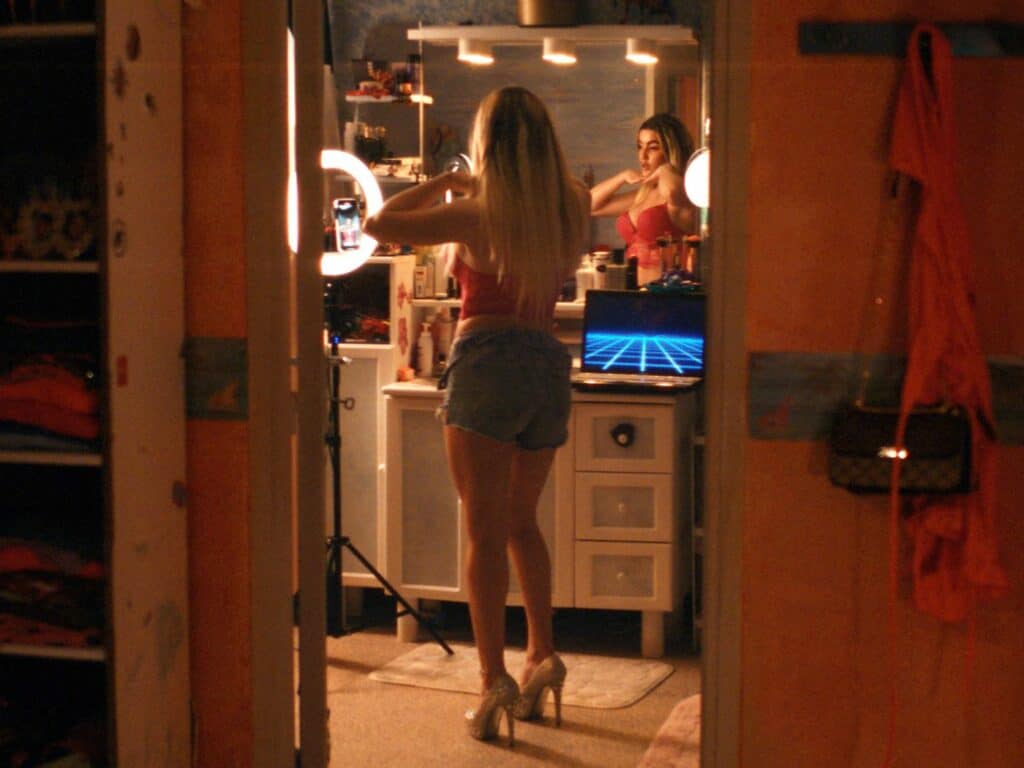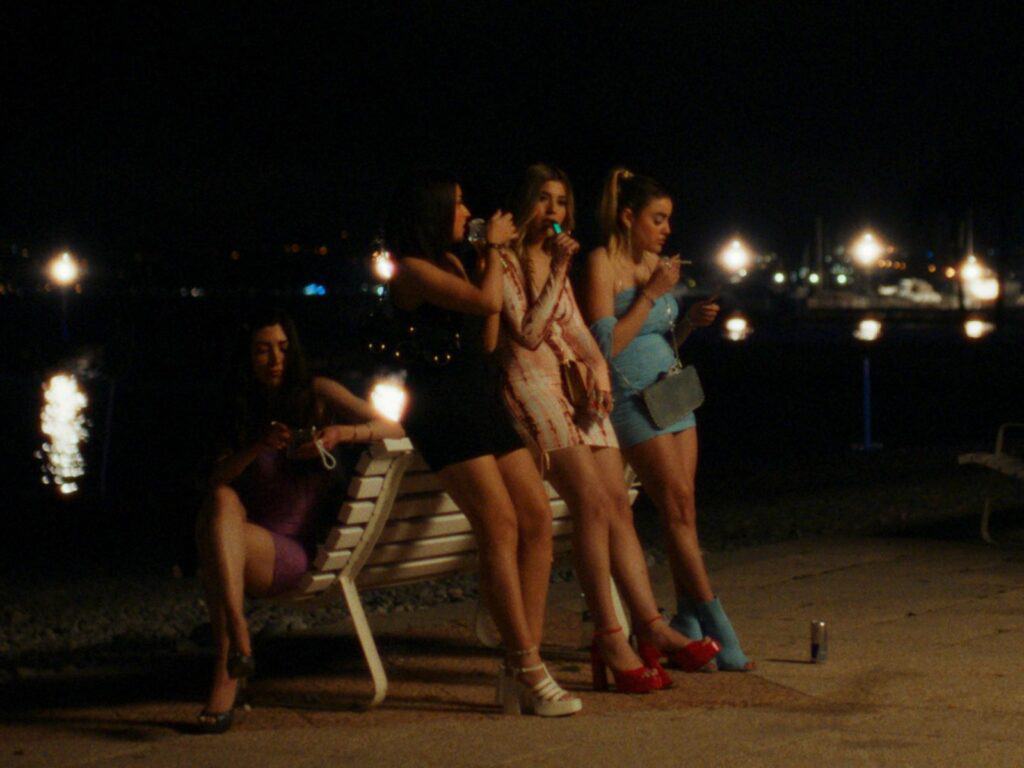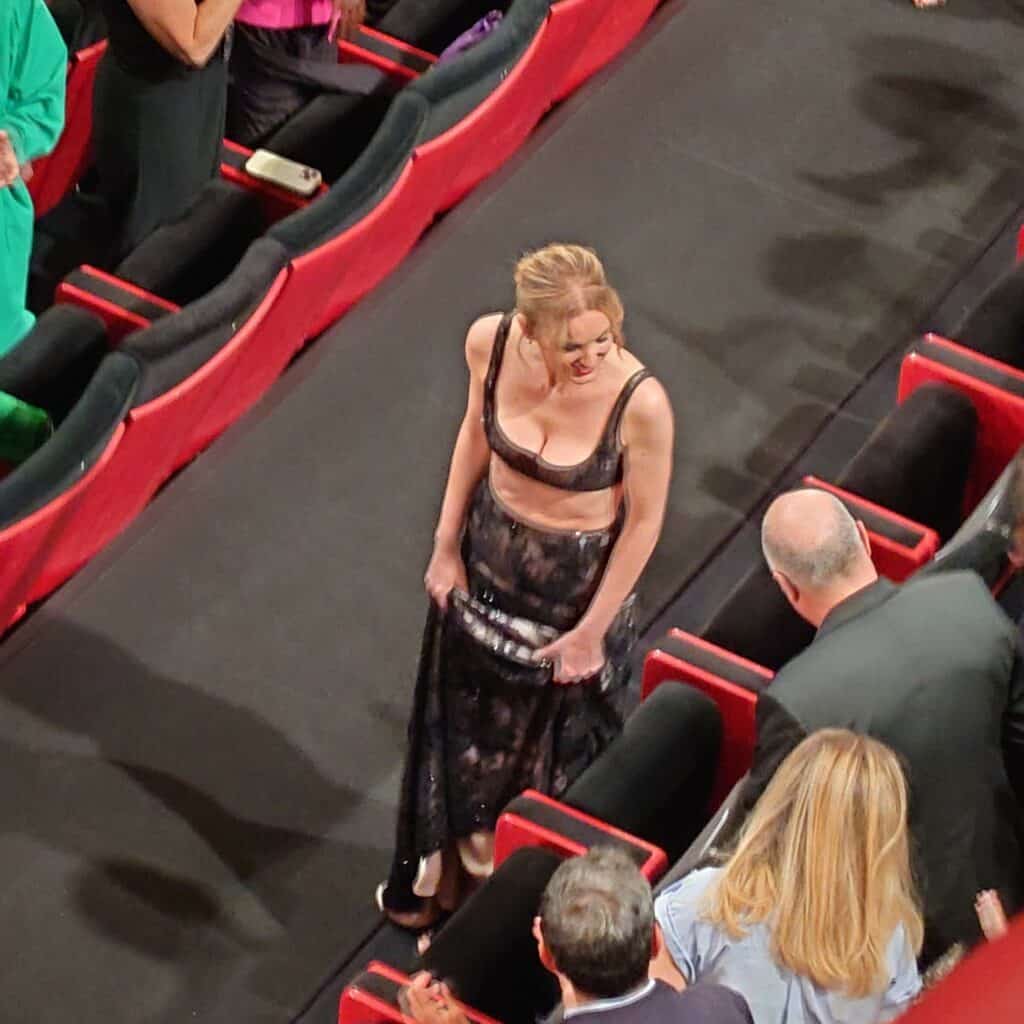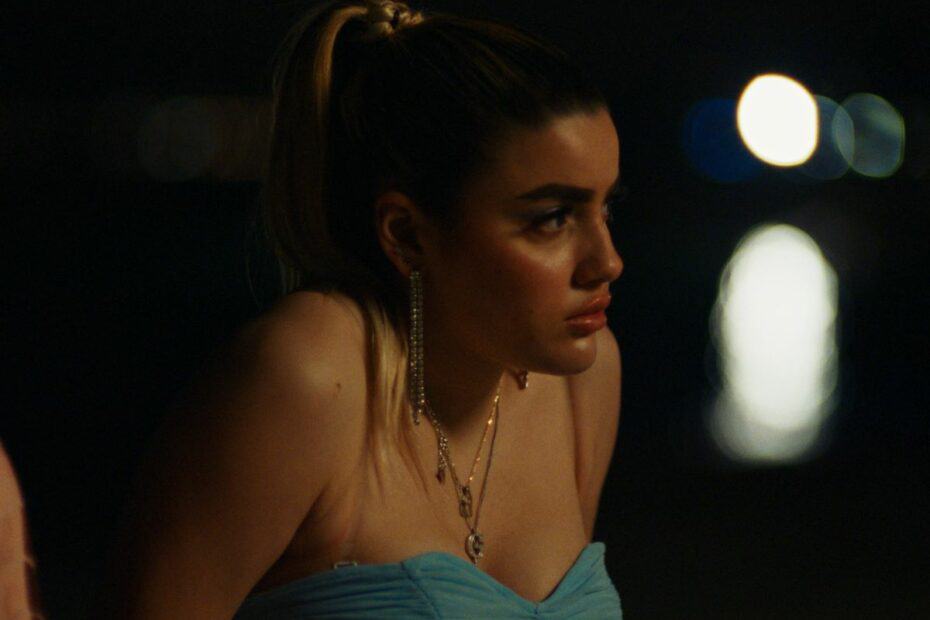Diamant brut (Wild Diamond) is yet another debut film selected for the competition section of the Cannes Film Festival. Liane, 19, lives with her mother and sister in Fréjus in the south of France, incidentally not far from Cannes. Obsessed by aspirations of beauty and stardom, she auditions for a reality show called Miracle Island. She often has to babysit her younger sister. Male figures are largely absent in her world, which basically revolves around creating content for her social media accounts. That’s when she is not drinking, shoplifting or engaging in other shady activities. She has augmented her breasts and lips, which goes well with the hyper-sexual image which she displays on her different platforms.
After sending a daring video to the above-mentioned reality show, she is asked to make an audition, which is quite invasive, but Liane understands what is expected of her: Not to come off as a good girl or whine when things get tough. When the two current stars on the show are mentioned, Liane says that they don’t seem to have any respect for women at all. The female producer icily answers that might be the case, but the point is their popularity and the spectators they bring. After the audition, Liane seems transformed and convinced that her position in Miracle Island is a lock, but time goes by without an answer from the show.

We continue to follow Liane in her mundane surroundings, which she desperately wants to escape. A description of the plot doesn’t sound very interesting and like yet another work of social realism work that is way too abundant nowadays. In fact, Riedinger’s debut feature is a dazzling work with ample qualities which are rare today in cinema, let alone in a first feature. Diamant brut is an extension of the director’s short, J’attends Jupiter (2018), which I have not been able to see yet. The films share the main character, and the director explains that she is fascinated by the late 19th-early 20th-century “cocottes” like Caroline Otéro and Liane de Pougy.
Diamant Brut is actually quite polished
Those women were born into poverty but managed to weaponize their assets to become wealthy courtesans, saintlike figures, or even princes’ wives. Riedinger sees a connection between those cocottes and how today’s reality show contestants carve out a niche for themselves. One should, obviously, not forget that the producers of those shows are the real winners with little regard for the participants. Nevertheless, it can be a way out of poor circumstances for anyone willing to do what it takes.

In a film where every aspect works, it would be reductive to single out Malou Khebizi in the leading role, but it is difficult to imagine the film without her. She is not merely fearless but also manages to display vulnerability when needed. The entire film is focused around her, so the other characters become more diffuse, but that’s a conscious decision by the director. It should still be mentioned that Andréa Bescond, as the mother, turns in an accomplished performance in an unthankful role.
We still haven’t approached the cinematic aspects of Diamant brut, which are actually the most impressive thing about the film. The film is shot in the Academy aspect ratio, which, according to the director, “makes everything look much better and allows you to work strongly with what is off-screen”.The stress on what is off-screen also makes what is on-screen more narrow, stressing the idea of confinement and suffocation. The paradox is that while this is perfectly achieved throughout the film, the sense of possible freedom is always present.

Noé Bach’s lensing is pitch-perfect, and I would go as far as to say that there is not a bad shot in the entire film. It’s no surprise to learn that the sets, costumes and camera movements were all meticulously designed. Something you rarely feel in current cinema. The film manages to be both naturalistic and pictorial. The cello-dominated score by Audrey Ismaël aids significantly in this regard. I feel that I have hardly scratched the surface of this highly accomplished film (the religious aspects, for example). Diamant brut is a miracle that is not island-bound, unlike the reality show. Hopefully, it’s not a lucky fluke, and Agathe Riedinger will produce equally impressive works in the future.
The reviews for the film have been mixed, which is disheartening, not least considering the hysteria around the abysmal The Substance by Coralie Fargerat, an ugly film that is best forgotten.

I agree with your conclusion and appreciate your analysis. I enjoyed Diamant Brut far more than The Substance as well. One is underrated and captivating, and the other I regret watching. Thanks for sharing your thoughts!
Thanks for sharing your thoughts, and for reading!